- Home
- Jane Arbor
Doctor's Love Page 3
Doctor's Love Read online
Page 3
“Well, Sister, how’s the patient?” he asked.
“I’m fine,” said Lysbet for the third time that evening as he examined the set of the pads and bandages on her shoulder without appearing to touch them.
Then, blissfully unaware of the state of armed neutrality in existence between the other two occupants of the room, he glanced at them inquiringly.
“Er?” he began, seeking an introduction to Aunt Alicia.
“This lady is Mrs. Tempest, Miss Marlowe’s aunt,” Sister Monahan told him in a thin clear voice. “She was saying before you came in, Doctor Guyse, that she wished to take, her niece home tonight.”
Richard thrust his hands into his pockets and squared his shoulders. “Oh, her surgeon wouldn’t advise that,” he said decidedly.
Aunt Alicia turned her cool gaze full upon him. “Really, Doctor? Why not?”
“Because the less mobility the better. Your niece is perfectly comfortable now, Mrs. Tempest, Sister will see that she has adequate nursing, and her shoulder will be under Mr. Garrett’s supervision every day.”
“But if I assure you that, provided the hospital can supply some means of getting her to my car, I can see that she has the best of nursing at home and can call upon the best possible opinions if necessary, surely you’ll agree that it would be better to move her?” Aunt Alicia’s manner was one of patient tolerance towards an opinion differing from her own, but when he replied Richard was equally patient, equally tolerant and vastly more sure of his ground.
“If you wish to call in another opinion, that can be done while Miss Marlowe is here. But I assure you that, to the best of my belief at present, it won’t be necessary. She will be having an X-ray in a day or two; until then and possibly for some time—a week perhaps—she ought to stay here.
Across Lysbet’s bed they looked at each other, measuring distance like duellists. Alicia Tempest saw a fair young man with straight grey eyes, whose will, she realized reluctantly, she might be forced to respect; Richard saw a strikingly handsome woman, beautifully dressed and groomed, about whose arrogance of character, he suspected, Caroline Ware might have been shrewdly right.
“Well, if she can’t come home,” suggested Mrs. Tempest, “is there any reason why she shouldn’t be moved to the Fallsborough Nursing Home? I’m known there and all this”—she sketched a gesture of distaste—“is rather public, isn’t it?”
“I’m afraid,” answered Richard, still patient, “there’s the reason which I have already given you—that for Miss Marlowe’s shoulder to remain immobile is essential. There’s another—that Mr. Garrett isn’t a consultant to the Nursing Home in question, and he’ll have a very natural wish to see the end of a case which he has begun. You’ll appreciate that, I’m sure, Mrs. Tempest?”
“Of course,” yielded Aunt Alicia gently. “Though I believe your own entry into my niece’s case was fortuitous in the extreme?”
Richard bowed slightly from the waist, taking the barbed shaft without so much as the flutter of an eyelid. “As you say—fortuitous in the extreme—I just happened to be there. I’m sorry if you have any quarrel with the way in which I acted?”
To this challenge Mrs. Tempest only smiled coolly, bafflingly, and it was left to Lysbet herself—much to her own surprise, since she rarely sided against her aunt in anything—to decide the issue between them.
“You know—the doctor’s right,” came her clear voice from the bed. “I’m staying here.”
When Mr. Garrett showed him the X-ray plates of Lysbet’s shoulder a day or so later, Richard said “H’m” in satisfied comment. Everything quite reassuring there—no splintering of the bone, just a simple fracture which would yield to a treatment of time and care.
Upon his rounds in due course he came to Lysbet’s room. She was reading and looked up reluctantly from her book. She listened while he told her what the X-ray had revealed—and nodded with satisfaction when he had finished.
“Then I shall be doing things with my shoulder quite soon?”
“That depends on what you mean by ‘doing things’.”
“Well—doing things! Swimming for one, riding for another, playing tennis—”
“I see. You wouldn’t be content with any lesser activity than some form of violent exercise?”
“Not particularly—while it is summertime. If I can’t swim again soon I shall have missed all the good weather!”
Richard smiled. “Well, I’m sorry. They were hoping here you’d be grateful for being allowed presently to get into your clothes without help, or to feed yourself. More than that, except lefthandedly, you won’t achieve for a good time yet—weeks at least.”
Lysbet’s face fell, and Richard, though he had many more patients to visit, still felt constrained to stay in order to offer her some comfort. She was very young after all, and the young were extraordinarily single-minded, even in the pursuit of their own minor tragedies. How old was she, he wondered? In her early twenties he supposed, though with that sweep of blue black hair falling forward and a faint flush of disappointment in her cheeks she looked much younger.
He thrust his hands into his trouser-pockets, leaned easily against the sill of the open window and remarked dryly:
“There are other things to do, you know. Reading, for instance. What’s the book you have there?”
Lysbet turned its spine towards him and on the old fashioned binding he read Pride and Prejudice.
“Jane Austen—eh? I thought the present generation took more kindly to, say Mickey Spillane?”
Lysbet laughed and Richard saw, with the pleasure he took in things beautiful, the high-lighting of green in the deep blue of her eyes. He had known she would look like that when she laughed...
“No, I like Jane,” she said. “Though at school they do the best they can to spoil her books by ‘setting’ them for English literature!”
“Yes, you have to rediscover her for yourself,” agreed Richard. “What about Trollope—do you know him?” They talked books for some time until suddenly Lysbet laid Pride and Prejudice face downwards on her knees and demanded, a propos of nothing: “You called me a little idiot the other day. Why did you?”
Richard laughed rather awkwardly. “Come—you weren’t meant to hear that! It was completely unprofessional of me, I’m afraid.”
“But you did say it. And I did hear it. It was because of that dive, wasn’t it?”
“Partly.”
“What do you mean—’partly’? That you thought I was only half to blame for it—that Barry?”
“No, not really,” he said, smiling at her quizzically. “You’ll forgive me taking a long shot at an idea of your character, and saying that I’m not in much doubt as to whose idea that dive was! Right?”
The corner of Lysbet’s mouth lifted in a half-smile and again she looked absurdly young. “Right,” she admitted. “But in that case what did you mean—‘partly’?”
Richard settled himself more comfortably against the window sill and grinned across at her boyishly. “Well, Miss Marlowe, mainly because the occasion of my finding you with a broken shoulder wasn’t my first encounter with you last Thursday afternoon!”
“Wasn’t? What do you mean? I don’t remember—”
Richard shook his head. “To do you justice, I don’t think you even saw me. But my car happened to follow yours into the drive of the Club and I had to brake and swerve rather violently in order to avoid you as you flung open your offside door and jumped out without so much as a glance behind you or into your driving mirror!”
“I’m sorry!” Lysbet gasped. “I didn’t see you—really I didn’t. And I was in such a hurry to get into the pool. Do try to believe that I don’t always drive like that, Doctor Guyse!”
“Forget it,” said Richard easily as he levered himself up from his seat, took his hands out of his pockets and straightened his coat. “And if I promise to believe that you don’t always ‘drive like that’ I’ll have to ask you to appreciate the combination of circumstanc
es which made me call you a little idiot in the heat of the moment! A bargain?”
“Of course!” agreed Lysbet eagerly.
For answer he came over to the bed and stood looking down at her, with, now, a seriousness behind his eyes.
“After all, you might have done yourself worse injury than this,” he said, indicating the padding about her shoulder and before Lysbet could agree with an abashed ‘I know’, he was gone.
As the regularly-organized hospital days passed, Lysbet found herself drawn increasingly into the life of the little community about her. She had a warm, lively interest in people, and it was not long before she knew all about Sister Monahan’s ambition to go abroad, the night-nurse’s hoverings upon the brink of being engaged, the effect of the weather upon the ward-maid’s rheumatism and various little human details like that.
She received masses of flowers and plenty of visitors; Barry, faithful and forgiving, telephoned frequently when he was not able to call at the Hospital and Aunt Alicia came every day.
“Darling Lysbet,” she said lightly one morning as she laid a great sheaf of white roses upon the bed, “I believe, you little rogue, that you’re positively enjoying the role of invalid!”
Lysbet wrinkled her nose in amusement. “It’s quite fun,” she admitted. “But I shouldn’t like it for too long, and Doctor Guyse says it won’t be, now. A few days more, he said.”
“ ‘Doctor Guyse’, ‘Doctor Guyse’!” mocked Mrs. Tempest. “What a pocket oracle you’ve made of the man since you’ve been here, darling! I thought Mr. Garrett was supposed to be your surgeon?”
“He is, but he is the consultant here. He doesn’t practise in Fallsbridge, and as Dr. Guyse brought me in, I think Mr. Garrett has taken for granted that Dr. Guyse is my G.P.”
“In which you haven’t corrected him, nor has Dr. Guyse?”
“Well, I haven’t got a doctor here, have I?”
“No. So I suppose we must expect that Dr. Guyse will be attending you after we do manage to get you home?”
“Oh yes, I expect so,” answered Lysbet innocently and could not have said why she felt a sudden urge to change the subject of Doctor Guyse. She looked admiringly at Mrs. Tempest. “Your suit, Aunt Alicia—it’s new!”
The coat and skirt of pale lavender colored linen sat exquisitely on the older woman’s figure; with it she wore a tiny straw hat of the shade of a Canterbury bell and she began now to draw on a pair of matching gloves.
“Do you like it? You’ll forgive me for not staying longer this morning, won’t you, darling? I’ve got to fly to the Garden Party Committee this minute—”
When she had gone Lysbet leaned back upon her pillows more comfortably than she had yet been able to do and wondered why she had not minded that Aunt Alicia had had to hurry away ... Could it be that Doctor Guyse had not yet made his visit and that she hadn’t particularly wanted them to meet? Could it be that she had, in less than a fortnight, come to look forward so much to the Doctor’s regular call at her room that she didn’t want to share the brief visit with anyone, not even Aunt Alicia?
She could hot know that the few minutes he was able to spend with her each day were becoming for Richard a sort of high-light upon the routine of his professional round; a promise to himself personally—presently he would be seeing Lysbet.
But today, though there was a full hour between Mrs. Tempest’s departure and the appearance of Lysbet’s luncheon tray at twelve o’clock, he did not come. Afterwards Lysbet settled herself in apparent obedience to ‘rest’, without betraying that she was feeling all the convalescent’s forlorn sense of having been deserted, along with a keen personal disappointment of her own.
She liked talking to Doctor Guyse, she told herself. Even when they did not agree they talked easily, taking each other’s meaning, enjoying each other’s jokes, as if they had been friends for far longer than they actually had. Aunt Alicia’s dislike of him was only prejudice because of that thwarting of her will in the evening of Lysbet’s accident; for all her own admiration and love of her aunt, Lysbet knew, shrewdly enough, that to cross Mrs. Tempest was a dangerous thing to do. Well, Doctor Guyse had done it; she herself had even helped him to do it. And she wasn’t sorry!
He came to see her just as her tea was being brought in. He looked at the tray and then at the nurse who was carrying it.
“D’you suppose the ward kitchen could run to another cup?” he asked. “I’ll share Miss Marlowe’s teapot if she’ll let me.”
Young Nurse Kaye blushed as she always did when addressed by a superior or a doctor. “I’ll get a cup,” she was beginning when Doctor Guyse peered more closely at Lysbet’s wafer sandwiches and microscopic piece of cake. “Er—Nurse,” he said, as coaxingly as a schoolboy; “there wouldn’t be gingerbread, I suppose?”
“I—I don’t know, sir. I’ll see,” promised Nurse Kaye as she departed with a whisk of her apron.
“Good gingerbread here—when there is any,” commented Richard as he sat down. “I don’t know how it is, but gingerbread isn’t what it was in my young days.”
“I can make it. When you let me use my arm again I’ll make you some,” Lysbet promised him.
“And deliver it in a tin box?”
“Why a tin box?”
“Somehow, gingerbread is inseparably associated in my mind with tin boxes. Because when I was away at school that was how it always arrived from home, I suppose.”
“You were lucky,” commented Lysbet. “Where I was at school we weren’t allowed to have food parcels from home.”
“You poor things. But I suppose authority realizes that the male of the species is more gross than the female and has to be stuffed accordingly,” remarked Richard as he rose to take a second tray, containing bread-and-butter, jam and several small cakes, from Nurse Kaye. “Look at this, for instance! No gingerbread, I grant you, but still enough to keep the wolf from the door after a long day of difficult cases.”
“But you’ve got influence here!” teased Lysbet.
“Well, why not share the fruits of it? I gather you went to school in England, by the way?”
Lysbet accepted bread-and-butter and jam before answering his question with slight surprise. “In England? Oh, yes. I went to Godelees in Sussex.”
“But you weren’t born in this country?”
“No. In South Africa. How did you know?”
“Intuition, I expect,” teased Richard momentarily. Then: “No, as a matter of fact, on the afternoon of your accident, while I was still gnashing my teeth over your faux-pas in the Club drive, I pointed you out to a friend of mine, Caroline Ware, and asked who you were—”
“Caroline Ware?” The puzzled line appeared again between Lysbet’s brows.
“I don’t think you know her. But she knew enough about you to be able to give me a sort of potted biography of you—how accurately I don’t know. But she did mention South Africa and said that she believed you came to England to live at Falcons with your aunt and uncle when you were still a little girl.”
“Not at Falcons,” corrected Lysbet. “Not at first, that is. The rest of it is true. Mother and Father died out in South Africa, and I came to England when I was eight. I went to live with Aunt Alicia and Uncle Everard—he died himself when I was fourteen—in a small town in Shropshire called Rowan. You’ve probably never heard of it. Anyway, I don’t think they—aunt and uncle, I mean,—could have had as much money then as they had later, because as far as I can remember we lived in quite a small house in Rowan,” she added youthfully.
“So you moved to Falcons later?” queried Richard.
“When I’d been in England for about a year or eighteen months. I remember vaguely that Uncle Everard came over all pompous one day—he was rather given to pomposity, though he was a darling—and said something about ‘creating a suitable atmosphere’. Either he didn’t say what for, or I’ve forgotten everything but that bit, but it turned out that what he meant was that we were going to move from Rowan. So we came to
Falcons, and Aunt Alicia and I went on living there after Uncle died. We’re still there—so that’s my autobiography to date!”
“You’re fond of Falcons?” smiled Richard, and was scarcely prepared for the fervour with which her reply came.
“I love it! It’s home, and though of course it’s Aunt Alicia’s really and won’t ever be mine, I can scarcely bear the thought of having to leave it, as I shall have to one day, I suppose.”
“But if Mrs. Tempest knows how much you love it, mightn’t she leave it to you?” suggested Richard gently. There was something very engaging in the way in which Lysbet was frankly pouring out the details of her personal life to him—as if she had taken him for a friend, as if she trusted him...
Lysbet shook her head. “There’s no reason why she should. She and Uncle Everard have done enough for me as it is. Because, you see, I haven’t any money of my own! And anyway, I’d hate to—to wait for Falcons like. That—” Her eyes darkened and Richard felt a sudden pity for her dependence and for the pride which could not let her ‘wait for’ the home which she loved and which might never be hers.
In dumb show he asked her permission to smoke and she nodded a little absently before turning to him and saying more gaily: “Well, that’s about me. Now tell me about—Caroline Ware, who knows me though I don’t know her!” The instant’s hesitation, which Richard did not notice, had significance for Lysbet. She had wanted to say “Tell me about yourself, but had felt suddenly shy and had adroitly substituted Caroline’s name.
Richard sighed and smiled rather ruefully. “Well, Caroline is very much with me at the moment, I’m afraid. She’s my secretary-cum-receptionist.”
“Oh,” said Lysbet blankly. “You said she was a friend—”
“Well, so she is. I’ve known her for years. But it was really Adrian who was my friend. Adrian was her husband—he was a doctor too. But he joined the R.A.M.C., went out to the Middle East; contracted malaria and died out there. That made Caroline a widow with a baby of a year old and she came to Fallsbridge to live in furnished rooms here. And I came to Fallsbridge, as you know, only a few months back. Well, naturally Caroline and I took up our friendship where we had left it—”

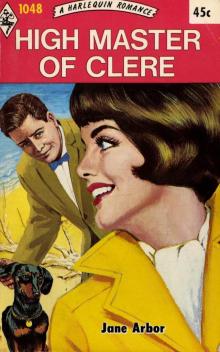 High Master of Clere
High Master of Clere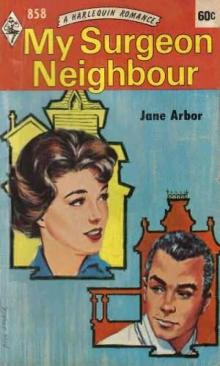 My Surgeon Neighbour
My Surgeon Neighbour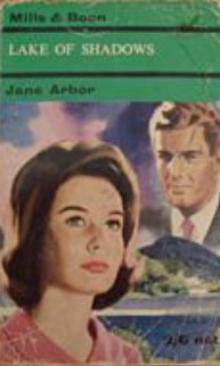 Lake of Shadows
Lake of Shadows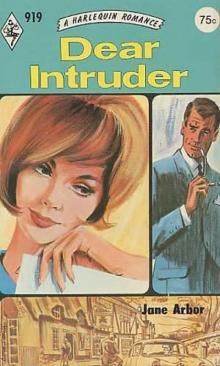 Dear Intruder
Dear Intruder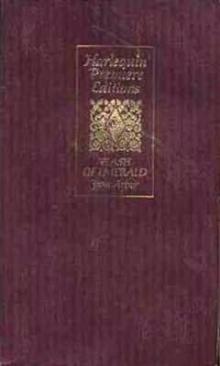 Flash of Emerald
Flash of Emerald Return to Silbersee
Return to Silbersee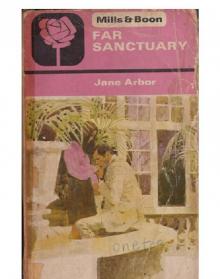 Far Sanctuary
Far Sanctuary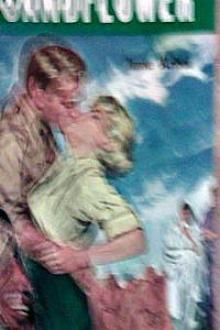 Sandflower
Sandflower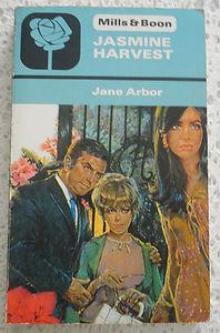 Jasmine Harvest
Jasmine Harvest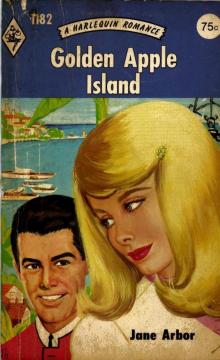 Golden Apple Island
Golden Apple Island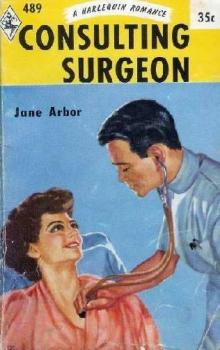 Consulting Surgeon
Consulting Surgeon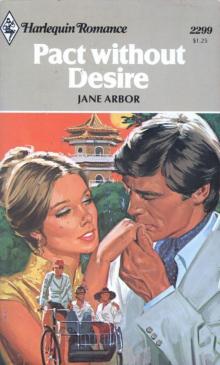 Pact without desire
Pact without desire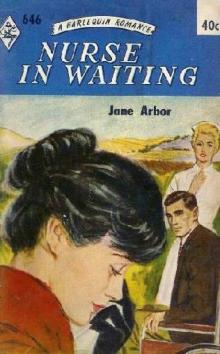 Nurse in Waiting
Nurse in Waiting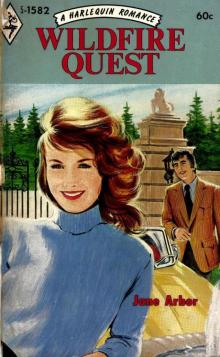 Wildfire Quest
Wildfire Quest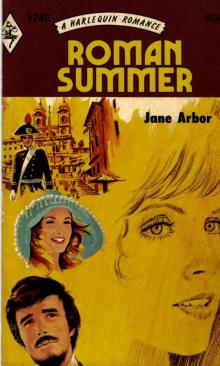 Roman Summer
Roman Summer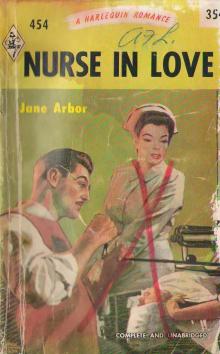 Nurse in Love
Nurse in Love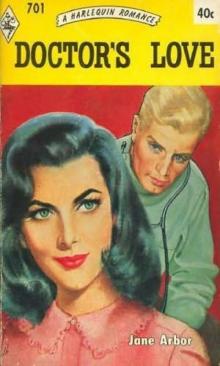 Doctor's Love
Doctor's Love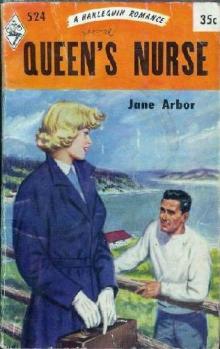 Queen's Nurse
Queen's Nurse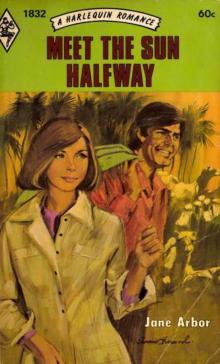 Meet the Sun Halfway
Meet the Sun Halfway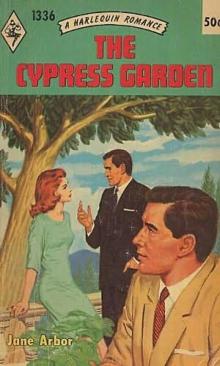 The Cypress Garden
The Cypress Garden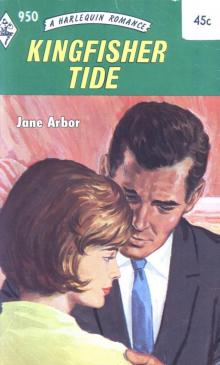 Kingfisher Tide
Kingfisher Tide A Growing Moon
A Growing Moon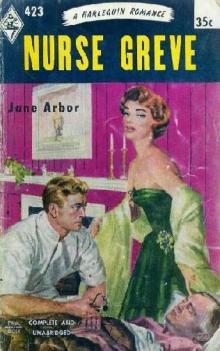 Nurse Greve
Nurse Greve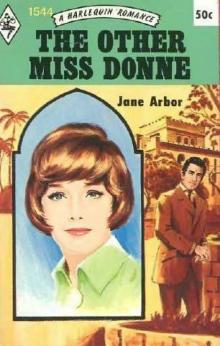 The Other Miss Donne
The Other Miss Donne